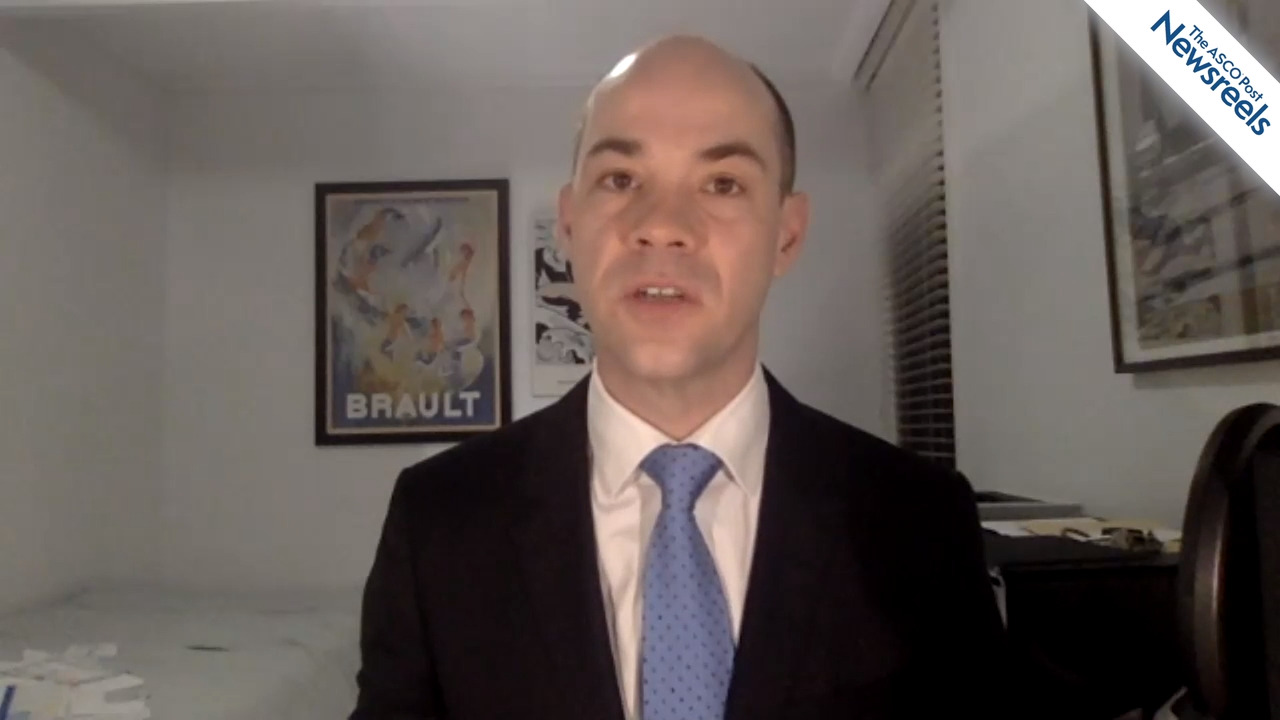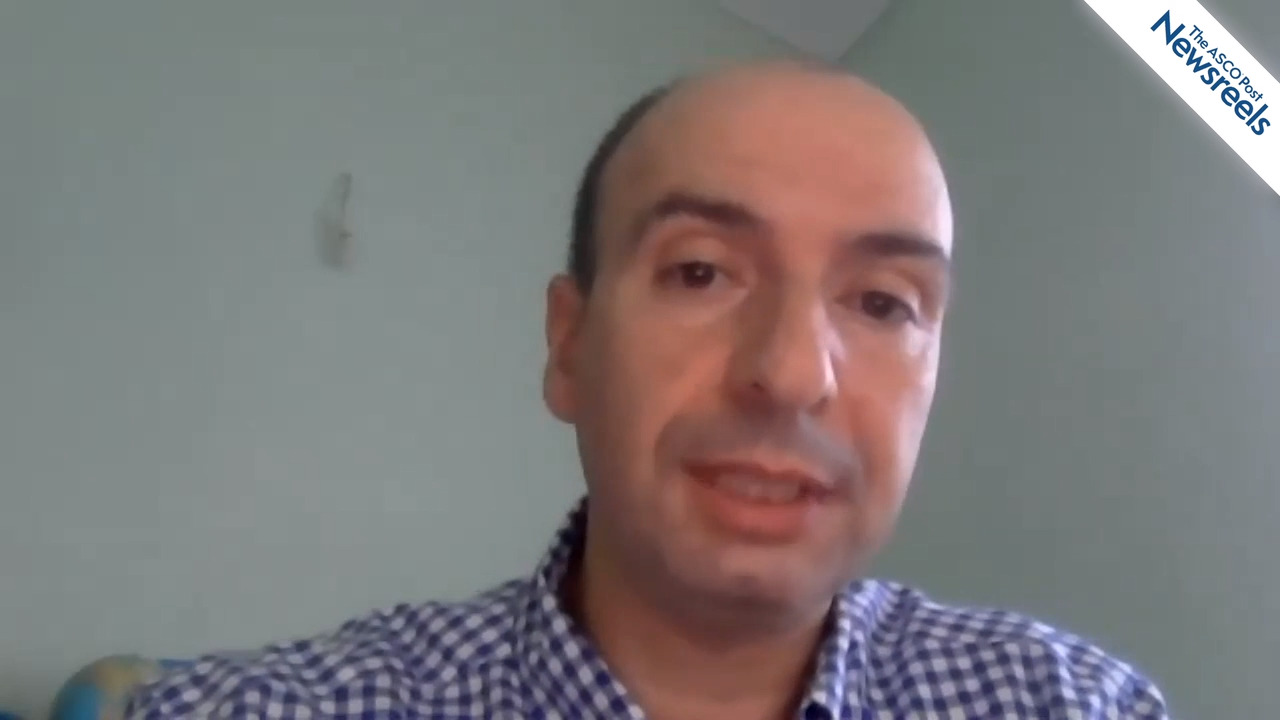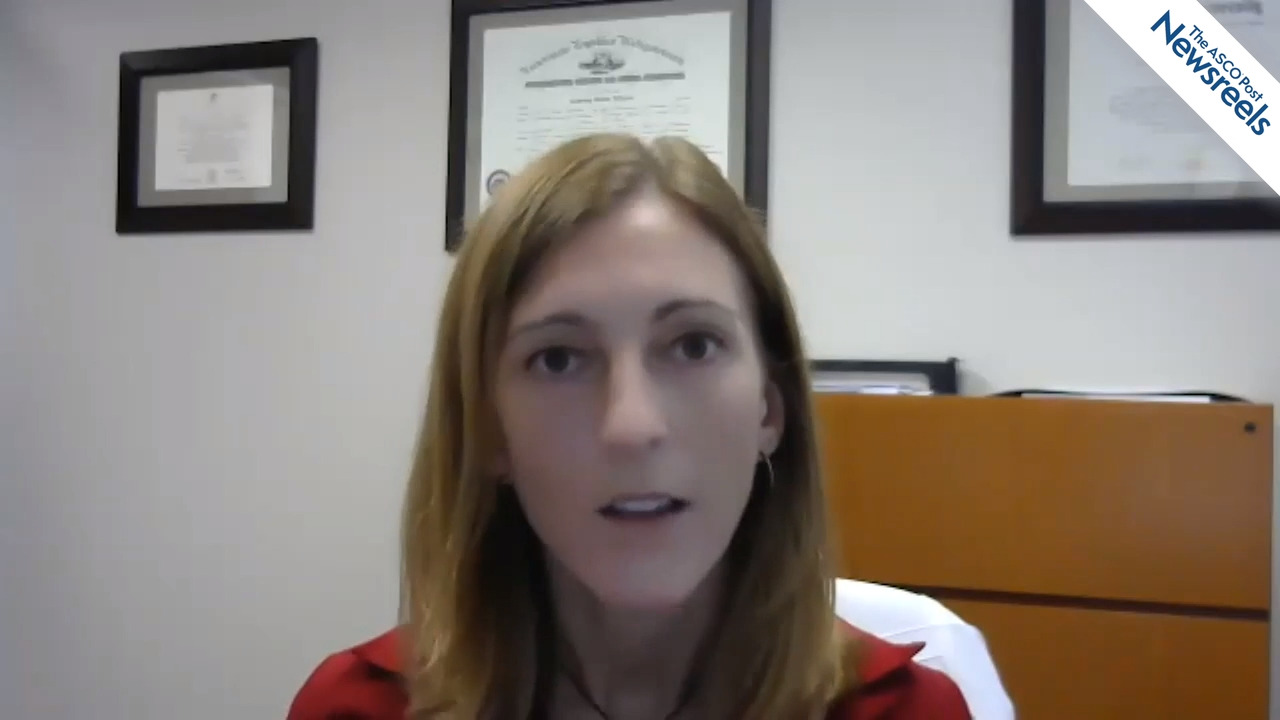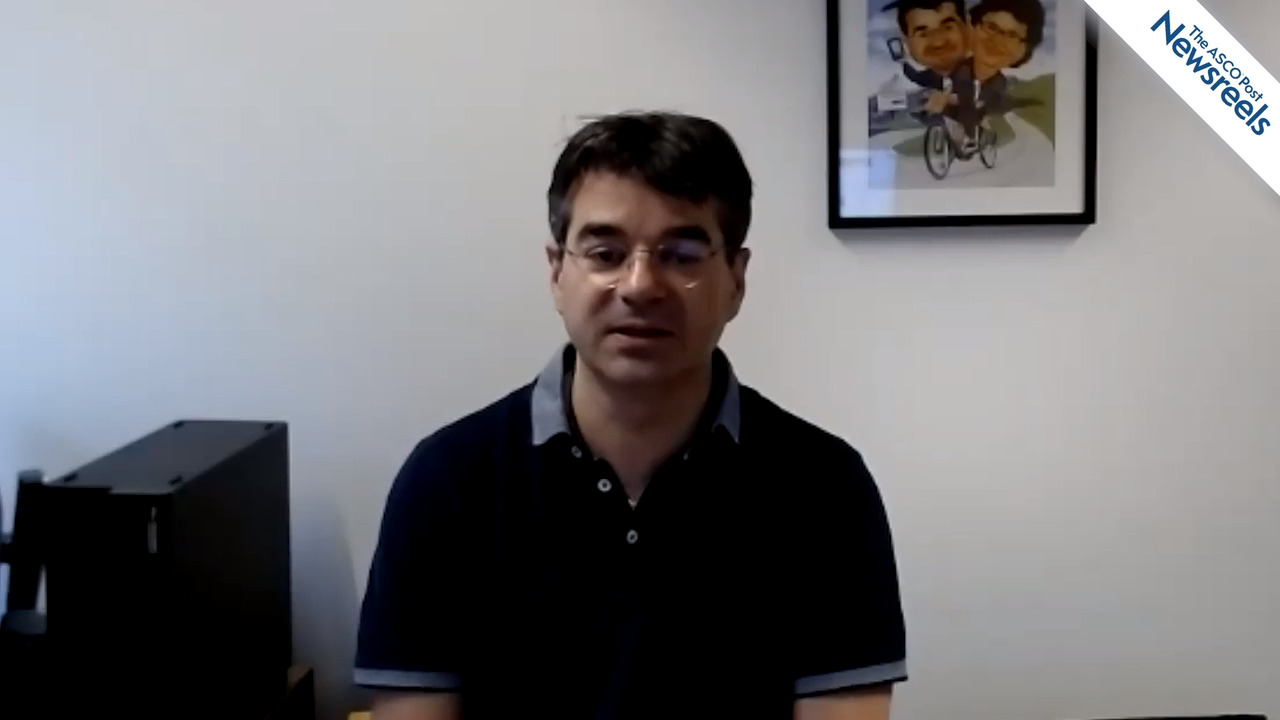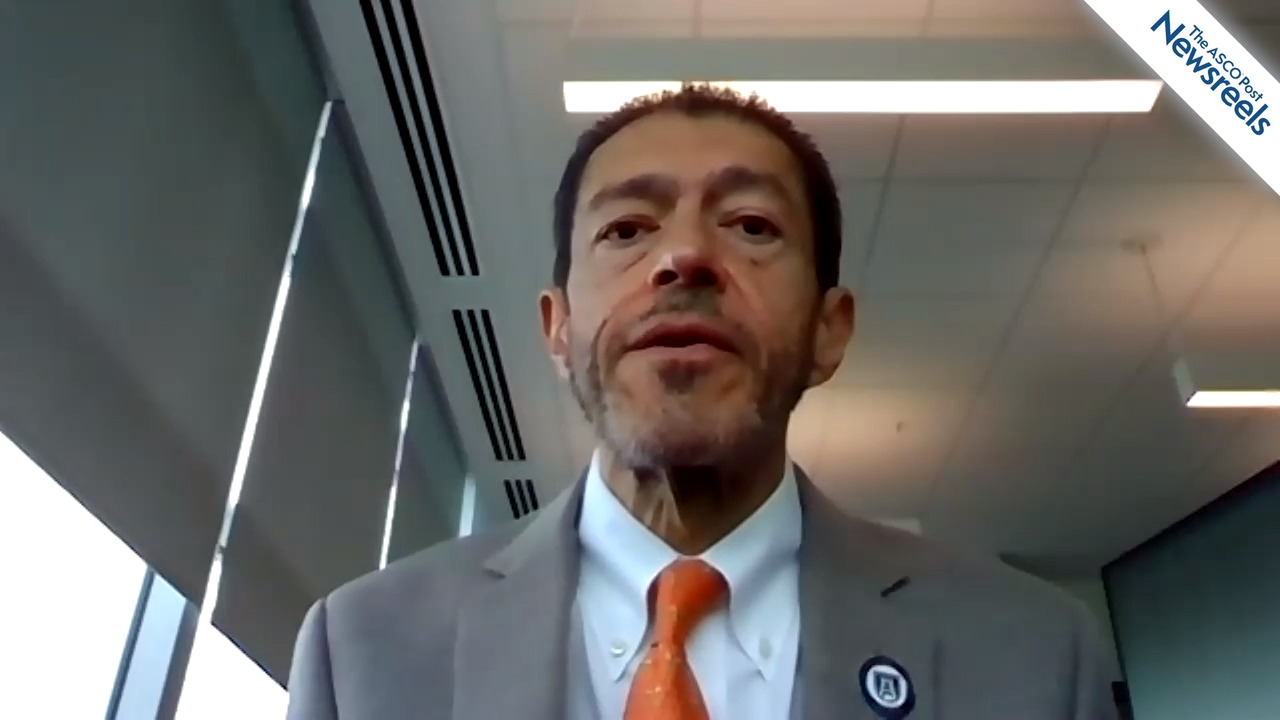Anthony Moorman, PhD, on ALL: Improving Outcomes With a Tyrosine Kinase Inhibitor Plus Chemotherapy
EHA25 Virtual
Anthony Moorman, PhD, of Newcastle University, discusses preliminary data showing high-risk patients with acute lymphoblastic leukemia and ABL-class mutations may have improved outcomes when a tyrosine kinase inhibitor is added to chemotherapy (Abstract S117).
The ASCO Post Staff
Michael J. Dickinson, MBBS, DMedSc, of the Peter MacCallum Cancer Centre, discusses phase I dose-escalation study results on CD20-TCB, which showed activity, including durable complete responses, and manageable safety in heavily pretreated patients with relapsed or refractory non-Hodgkin lymphoma (Abstract S241).
The ASCO Post Staff
Efstathios Kastritis, MD, of the University of Athens, discusses phase III findings of the Andromeda study. Adding daratumumab to cyclophosphamide, bortezomib, and dexamethasone resulted in deeper and more rapid hematologic responses and improved clinical outcomes in patients with newly diagnosed light chain amyloidosis (Abstract LB2604).
The ASCO Post Staff
Courtney D. DiNardo, MD, of The University of Texas MD Anderson Cancer Center, discusses data from her study of treatment-naive, predominantly older patients with acute myeloid leukemia who are ineligible for intensive therapy. The research shows venetoclax plus azacitidine improved response rates and overall survival compared with azacitidine alone (Abstract LB2601).
The ASCO Post Staff
Arnon P. Kater, MD, PhD, of the University of Amsterdam, Cancer Center Amsterdam, discusses phase IIIb results from the VENICE I trial, which confirmed that venetoclax monotherapy can achieve deep responses and has a tolerable and manageable safety profile in patients with relapsed or refractory chronic lymphocytic leukemia (Abstract S156).
The ASCO Post Staff
Jorge E. Cortes, MD, of Georgia Cancer Center, discusses interim results from the OPTIC study, which showed a trend toward dose-dependent efficacy and safety, and may provide a refined understanding of the ponatinib benefit/risk profile and its relation to dose. Mature data from continued follow-up may support an alternate dosing regimen for patients with chronic phase chronic myeloid leukemia (Abstract S172).
